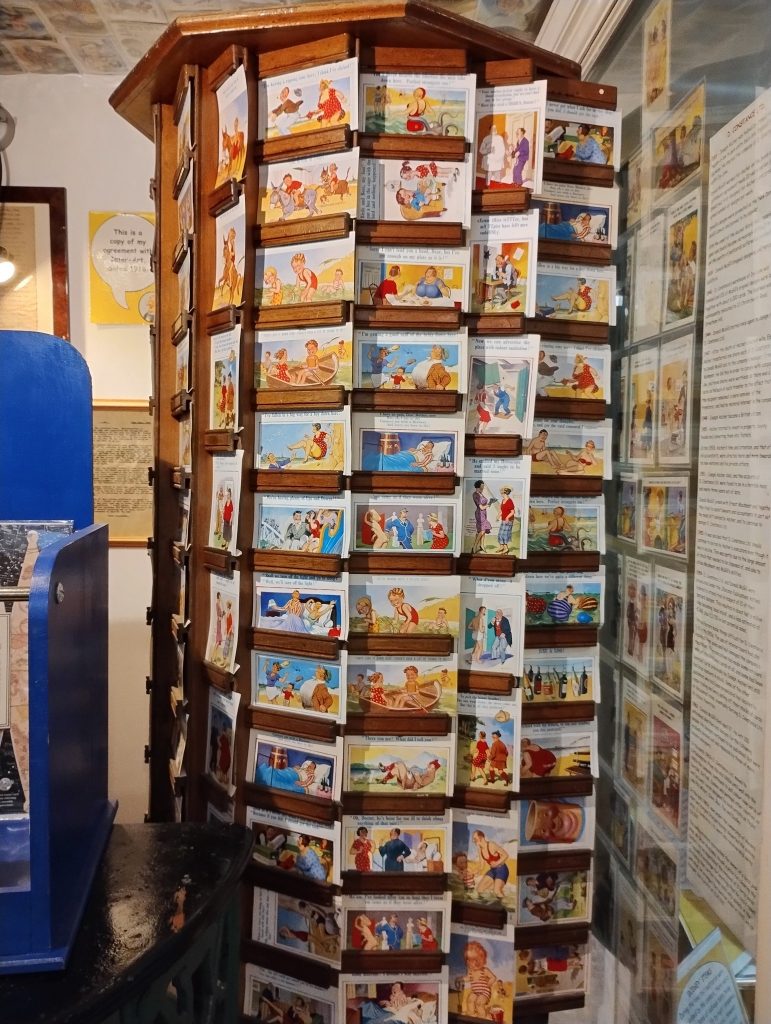Donald McGill: The King of the Seaside Postcard
Step into the vibrant world of Donald McGill, often hailed as the “King of the Seaside Postcard”. From 1904 to 1962, McGill created over 12,000 unique artworks, each a miniature reflection of British life. His postcards captured everything from the shifting sands of the Suffragette movement and the advent of new transport, to the sombre realities of two World Wars. They form a colourful, often humorous, social history of nearly six decades.
A Glimpse into the Collection at Ryde
Today, the Historic Ryde Society is proud to present the Donald McGill Saucy Seaside Postcard Museum. This remarkable collection, acquired in 2009 by James Bissell-Thomas along with the copyright to McGill’s extensive body of work, offers an unparalleled look into the artist’s prolific career and the evolving social attitudes of the 20th century.
When Humour Met the Law: The Ryde Scandal of 1953
While celebrated by many, McGill’s playful humour often clashed with the stricter sensibilities of the mid-20th century. By the 1950s, over 300 of his designs had been “disapproved” by seaside councils, with censorship committees in resorts such as Blackpool and the Isle of Man vetting cards before they could reach the shops.
This tension culminated dramatically in Ryde in 1953, when police raided five local shops and seized more than five thousand of McGill’s “unsuitable” postcards. The consequences were severe: Donald McGill was prosecuted under the 1857 Obscene Publications Act, a legal battle that cast a shadow over his otherwise illustrious career.
Beyond the “Sauce”: Appreciating an Artistic Legacy
The Historic Ryde Society invites visitors to look beyond the “saucy” reputation and discover the true artistic skill of Donald McGill. The exhibition aims not only to showcase his talent as an accomplished artist but also to explore the wider historical context of censorship and artistic freedom. In doing so, it highlights the harshness of his prosecution and helps ensure that his extraordinary legacy is properly appreciated and understood.






